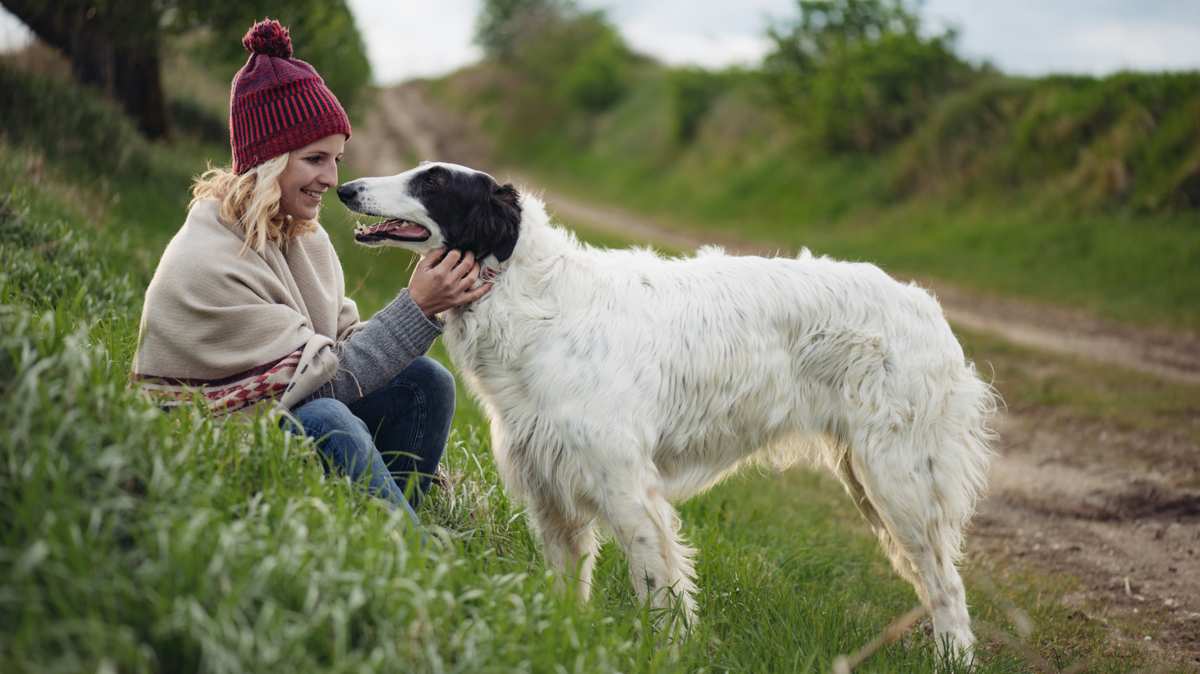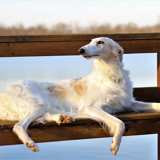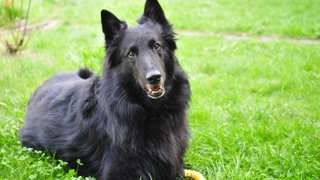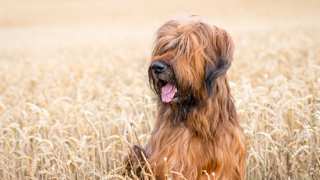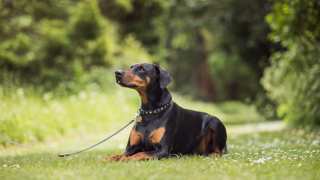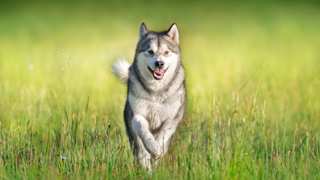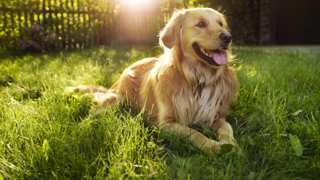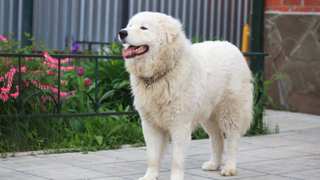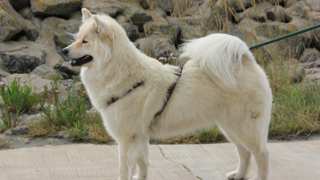Despite their swiftness, these dogs aren't especially high-energy, so Borzoi exercise requirements aren't too extensive. As intelligent hunting hounds, these dogs will need a variety of activities that condition them physically (walking, fetch) and stimulate them mentally (games, canine sports). They make great jogging and bicycling companions as well--and since they can reach 35-40 m.p.h. at a full gallop, they'll easily keep up with you! Also, though Borzoi can adapt well to apartment living, it's best if they have access to a large, open, fenced area where they can stretch out and run.
Specifically how much exercise does a Borzoi need each day? The typical adult, depending on its age and overall activity level, will only need about 45 minutes of proper exercise per day--which you can accomplish with a couple of good walks, jogs, or bike rides and a moderate period of play. You can start exercising your Borzoi puppy when it's 3-3½ months old by taking it on short (5- to 7-minute) walks once daily, then you can increase the walks' length and frequency as the puppy grows. And these early walks are a good opportunity to start teaching your young Borzoi obedience, through leash training: have the pup walk beside or behind you on the leash instead of being allowed to lead or "tug" on it. This, in the puppy's mind, establishes you as the leader, and should make training easier as the dog matures.
A few things to keep in mind as you're exercising your Borzoi: first, puppies younger than ten months old shouldn't participate in activities that include a lot of jumping, running on hard surfaces, or navigating of stairs, as doing so can injure their still-developing joints and bones. And regardless of age, Borzoi will need to be leashed when in public. Dogs of this breed have a very high prey drive, and will instinctively chase small animals--birds, squirrels, and cats, among others--unless controlled by a leash. Even when exercising in your own yard, the area will need to be securely fenced to keep the dog from running off after potential prey. Keep in mind, too, that Borzoi are good escape artists, and may even leap a fence to chase a rabbit or other critter unless closely supervised. And finally, Borzoi don't like being alone (and easily suffer separation anxiety if they are), so they'll need to exercise with their people instead of doing so alone.
A note about feeding and exercise: deep-chested breeds like the Borzoi are prone to gastric torsion (bloat), an often-fatal digestive condition that occurs when a dog "wolfs" its food and its stomach fills with excess air; bloat is most common when a dog eats just before or after exercising. So it's best to allow an hour or two between meals and exercise periods.
Precautions aside, it's important to exercise your Borzoi every single day. Though not super-energetic, these dogs are active enough--and without consistent activity they'll become incredibly destructive and disobedient, especially when younger. Regular exercise will be great for both the dog's and your own peace of mind! A few exercise ideas:
- Walking/Jogging/Bicycling: Two 20-minute walks (or 15-minute jogs or bike rides) per day is a good target
- Fetch/Frisbee: These dogs will chase a ball, stick, or Frisbee for hours
- Tug-of-War: Good indoor, rainy-day activity; use a rope or old towel
- Canine Sports: Borzoi are excellent competitors in agility trials, lure coursing, and other events
- Dog Park: If properly socialized, Borzoi enjoy the company of other dogs
- Hiking: Excellent bonding activity; bonus if you can find a remote area where the dog can be off-leash
When indoors (which is where these dogs like to live, so they can be close to you!), give your Borzoi access to balls or toys to allow the dog to burn excess energy. It's also recommended that you establish a regular exercise schedule for the dog, such as walks, jogs, or bike rides in the morning and evening and a play period in the afternoon.
